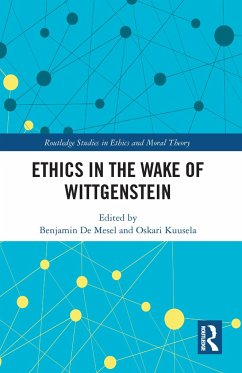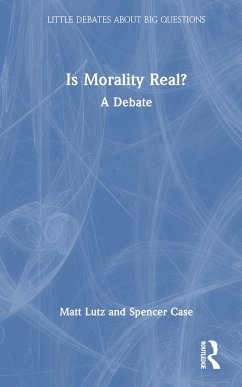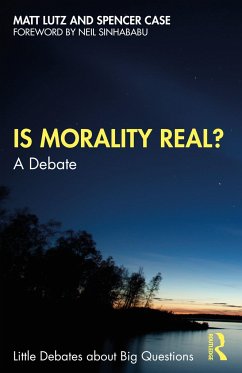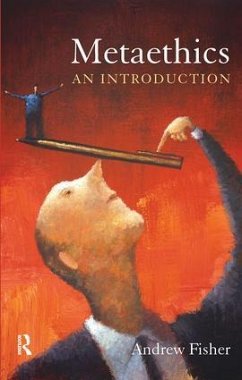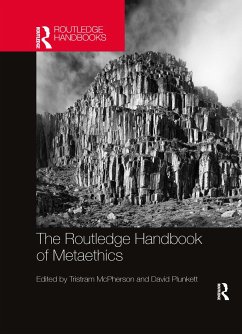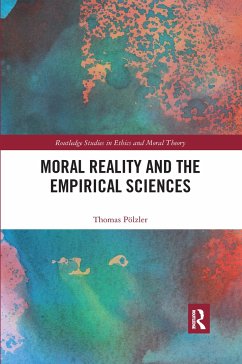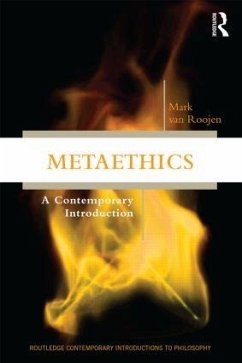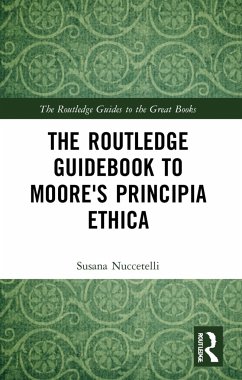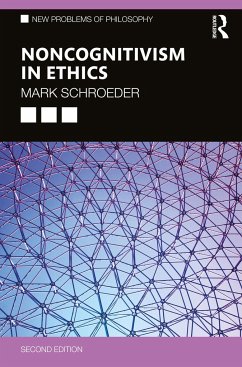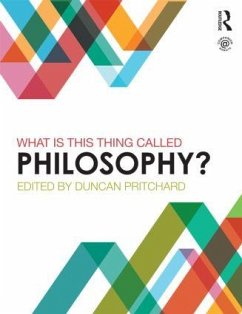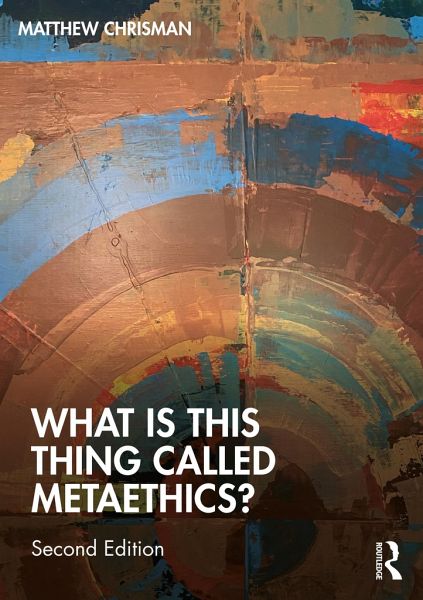
What is this thing called Metaethics?
Versandkostenfrei!
Versandfertig in 6-10 Tagen
42,99 €
inkl. MwSt.
Weitere Ausgaben:

PAYBACK Punkte
21 °P sammeln!
What makes something morally right? Where do our ethical standards come from? Are they relative to cultures or timeless and universal? Are there any objective moral facts? What is goodness? If there are moral facts, how do we learn about them? What do we mean when we say someone ought to do something? These are all questions in metaethics, the branch of ethics that investigates the status of morality, the nature of ethical value, the possibility of ethical knowledge, and the meaning of ethical statements. To the uninitiated it can appear abstract and far removed from its two more concrete cous...
What makes something morally right? Where do our ethical standards come from? Are they relative to cultures or timeless and universal? Are there any objective moral facts? What is goodness? If there are moral facts, how do we learn about them? What do we mean when we say someone ought to do something? These are all questions in metaethics, the branch of ethics that investigates the status of morality, the nature of ethical value, the possibility of ethical knowledge, and the meaning of ethical statements. To the uninitiated it can appear abstract and far removed from its two more concrete cousins, ethical theory and applied ethics, yet it is one of the fastest-growing and most exciting areas of ethics.
What is this thing called Metaethics? demystifies this important subject and is ideal for students coming to it for the first time. Beginning with a brief overview of metaethics and the development of a "conceptual toolkit," Matthew Chrisman introduces and assesses the following key topics:
ethical reality: including questions about naturalism and non-naturalism, moral facts, and the distinction between realism and antirealismethical language: does language represent reality? What mental states are expressed by moral statements?moral psychology: the theory of motivation and the connection between moral judgement and motivationmoral knowledge: intuitionist and coherentist moral epistemologies, and theories of objectivity and relativism in metaethicsprominent metaethical theories: naturalism, nonnaturalism, error-theory, and expressivismnew directions in metaethics, including non-traditional theories, thick ethical concepts, and extensions to metaepistemology and metanormative theory
The Second Edition has been completely revised and updated throughout. This includes a new thematic organization of the core chapters, many new examples, a newly written final chapter including discussion of thick ethical concepts and all-things-considered normativity, updated references to recent scholarly literature, improved learning resources, an expanded glossary of terms, and much more.
Additional features such as chapter summaries, questions of understanding, and suggestions for further reading make What is this thing called Metaethics? an ideal introduction to metaethics.
What is this thing called Metaethics? demystifies this important subject and is ideal for students coming to it for the first time. Beginning with a brief overview of metaethics and the development of a "conceptual toolkit," Matthew Chrisman introduces and assesses the following key topics:
ethical reality: including questions about naturalism and non-naturalism, moral facts, and the distinction between realism and antirealismethical language: does language represent reality? What mental states are expressed by moral statements?moral psychology: the theory of motivation and the connection between moral judgement and motivationmoral knowledge: intuitionist and coherentist moral epistemologies, and theories of objectivity and relativism in metaethicsprominent metaethical theories: naturalism, nonnaturalism, error-theory, and expressivismnew directions in metaethics, including non-traditional theories, thick ethical concepts, and extensions to metaepistemology and metanormative theory
The Second Edition has been completely revised and updated throughout. This includes a new thematic organization of the core chapters, many new examples, a newly written final chapter including discussion of thick ethical concepts and all-things-considered normativity, updated references to recent scholarly literature, improved learning resources, an expanded glossary of terms, and much more.
Additional features such as chapter summaries, questions of understanding, and suggestions for further reading make What is this thing called Metaethics? an ideal introduction to metaethics.





